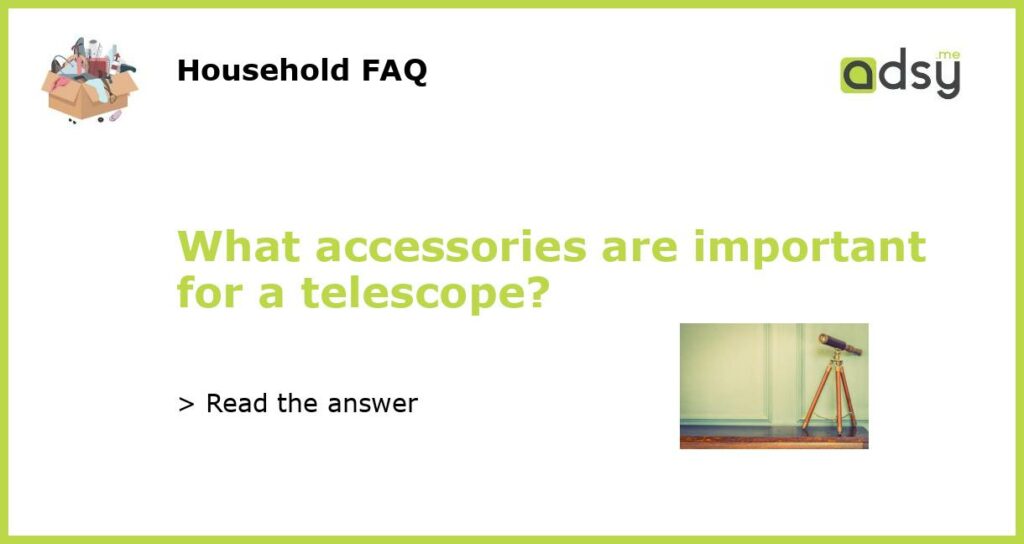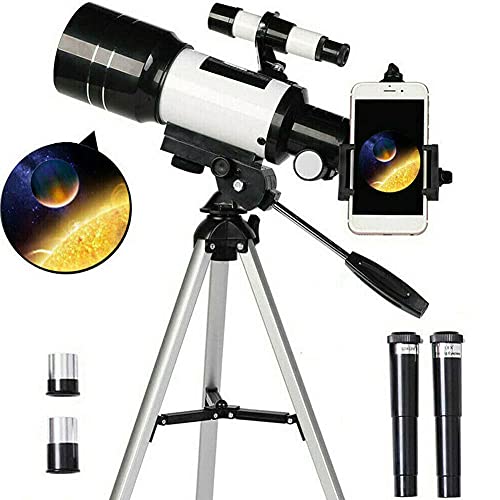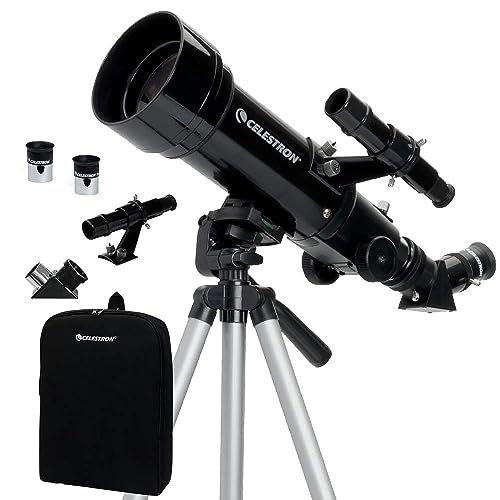Eyepieces
One of the most important accessories for a telescope is a set of quality eyepieces. Eyepieces are responsible for magnifying the image and determining the field of view. They come in various focal lengths, which determine the level of magnification. To get the best viewing experience, it is advisable to have a range of eyepieces with different focal lengths. This allows you to change the magnification depending on the object you are observing.
Barlow Lens
A barlow lens is a useful accessory that effectively doubles the magnification of your eyepieces. It achieves this by increasing the focal length of the telescope. By inserting the barlow lens between the eyepiece and the telescope, you can achieve higher magnification without the need for additional eyepieces. This is especially useful when observing objects that require a high level of magnification, such as the planets in our solar system.
Mount and Tripod
Having a stable mount and tripod is crucial for a telescope. A sturdy mount ensures that your telescope remains steady while observing, minimizing vibration and enhancing the viewing experience. There are different types of mounts available, including alt-azimuth and equatorial mounts. Alt-azimuth mounts are easier to use and suitable for terrestrial and celestial observations, while equatorial mounts are designed for tracking objects in the night sky.
Finder Scope
A finder scope is a small telescope attached to the main telescope. It helps locate objects by providing a wider field of view and a lower magnification than the main telescope. This makes it easier to locate faint objects or align the telescope with a specific target. The finder scope is typically aligned with the main telescope to ensure accuracy in locating objects.
Filters
Filters are optical accessories that can enhance the visibility of specific details and features in celestial objects. For example, a moon filter reduces glare and enhances the contrast of lunar features, while a solar filter allows safe observation of the sun. Filters for specific wavelengths of light, such as hydrogen-alpha filters, can also be used to observe specific features like solar prominences. It is essential to use filters specifically designed for telescopes to protect both your eyes and the equipment.






